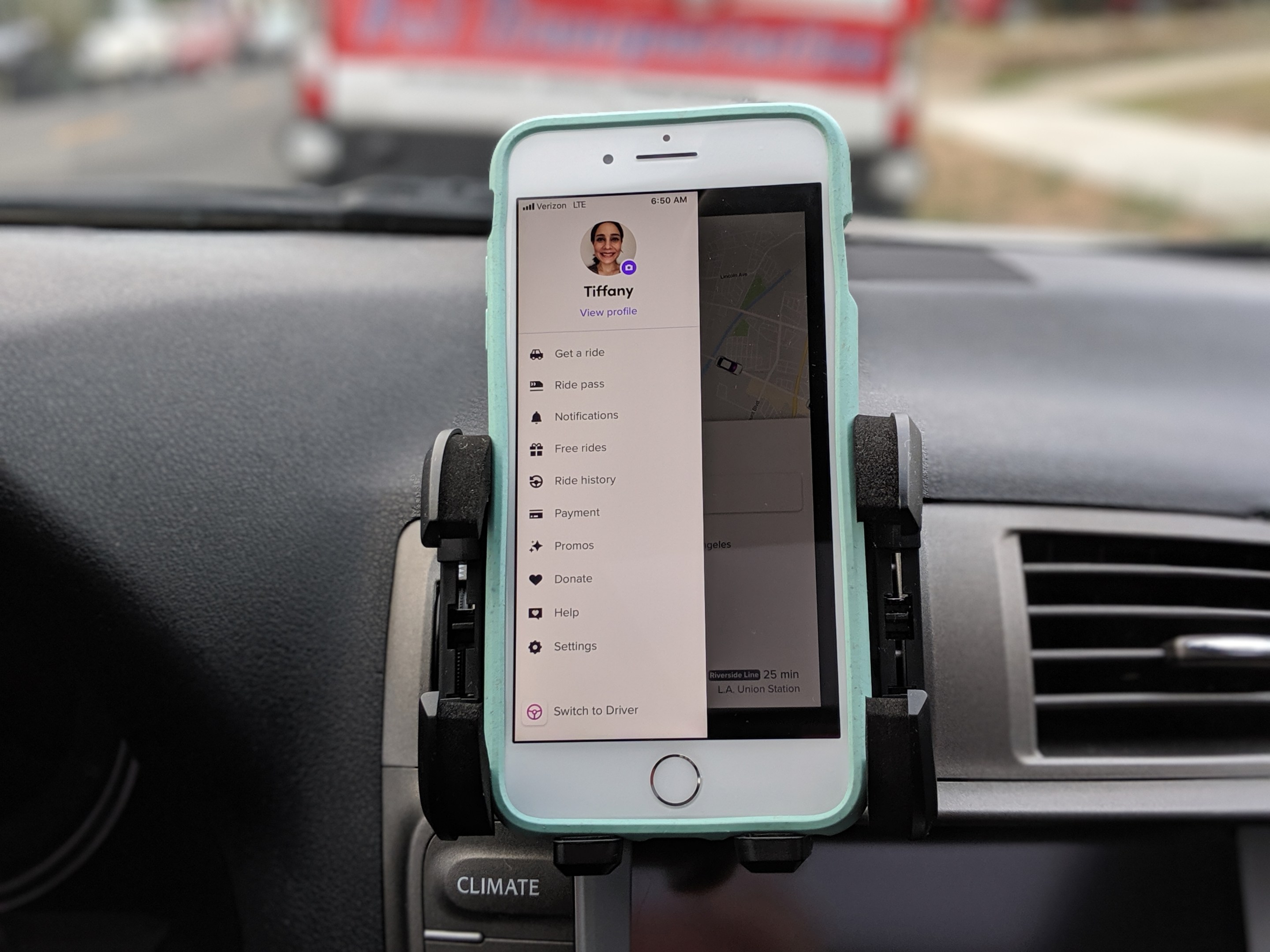[dropcap size=big]I[/dropcap] had just dropped off an elderly Latino couple returning home from their lunch date when the call came through. The pickup address was a few minutes away in the Crenshaw neighborhood. As I waited outside the house for the passenger to appear, I was nervous about what to expect, being a young, attractive Lyft driver who within a few short weeks had already dealt with one creepy passenger too many.
Ridesharing is an economy that is taken for granted. People assume it’s a good way to earn quick, substantial cash. You use an app, press a couple of buttons, drive people somewhere and boom, easy money in the bank. Right?
Not exactly.
Upon finding myself unexpectedly unemployed last December, I signed up for what I thought would be a good source of supplemental income, only to discover the reality was much different.
Back to that day in Crenshaw, a tall man with a muscular build approached. He carried with him several trash bags. Instead of freaking out which would have been a totally justified reaction, I waited patiently as he got inside my car.
I popped the trunk, he placed the lumpy bags inside and then entered. After a few minutes of polite pleasantries, he said, “I just got out of prison six months ago. That was my halfway house back there and now I’m heading to my permanent situation.” I remained calm. It was an admission I was not prepared to hear yet there it was hanging in the air. I think I said something like, “Congratulations!”
During that afternoon drive from Crenshaw to Bellflower, we discussed many topics from the reason why I was driving Lyft to his upcoming job on an oil rig off the coast. It turns out he was proudly carrying on his family’s legacy of working the rigs. Approximately 33 minutes and 21.12 miles later, I dropped him off at his new home. We exchanged goodbyes and he went on his way—even sending a tip afterward.
That experience has stayed with me because if there is one thing I learned throughout this Lyft driver phase of my life, it is to never judge a book by its cover. However, like everything else in life, there are exceptions.
These are my six truths learned straight from the school of rideshare economy knocks.
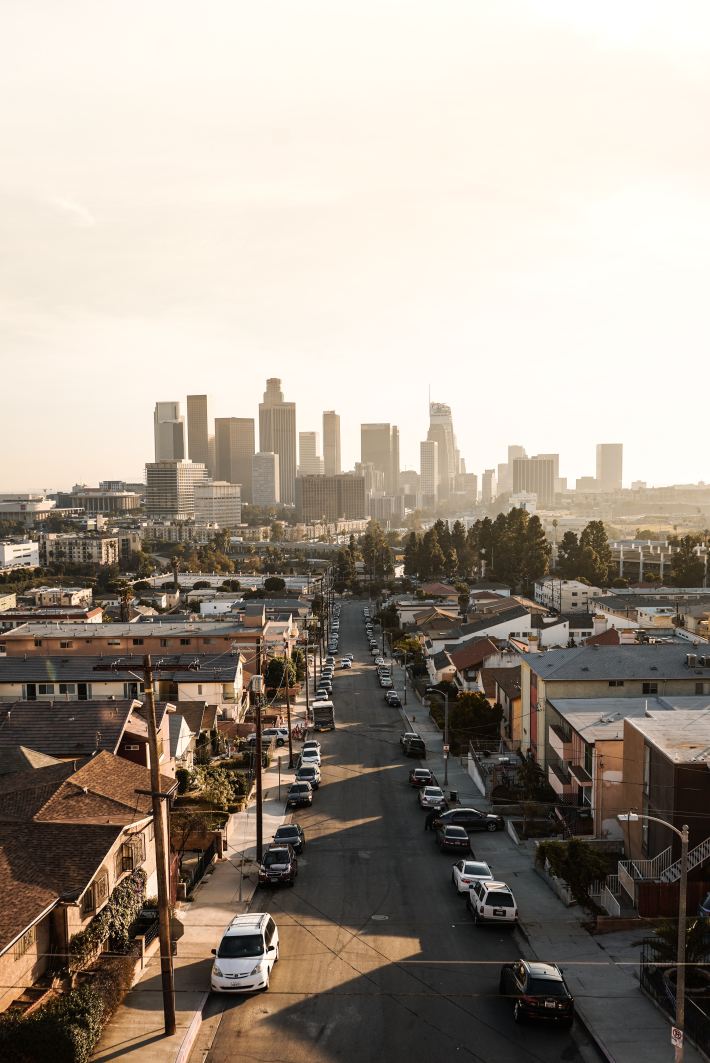
1. Driving Miles and Miles to Break Even
It takes more rides than you think to hit a break-even point let alone a significant return for any living expenses. On average, I spent approximately 8 hours per day behind the wheel, 6 to 7 of which included actual rides. I considered myself lucky to walk away with a gross of $120-$140 on these days. Deduct $60 for gas, and another $15 for a car wash, the actual take away from any of these shifts was $45-$65. Definitely not enough to pay the rent, not even enough to pay the phone bill. Don’t forget about Uncle Sam either. On slower days such as a Saturday afternoon, I was lucky to bring in $32.
The simple fact is there’s very little return on each ride, especially after accounting for gas and maintenance.
The driver app includes a feature that estimates potential peak times for the week ahead, yet sometimes the data did not match the reality and I would be driving around different neighborhoods during supposed “peak” hours searching for ride requests that never came.
On the flipside, consistency was not the issue because when it rained requests, it poured. The simple fact is there’s very little return on each ride, especially after accounting for gas and maintenance.
Airport fares are great if the Lyft lot isn’t full or if you get consistent fares to/from the area, which is unpredictable because there’s no foretelling where any given passenger will take you. There is also the risk of penalties for remaining in the airport proximity when the lot is full and not leaving within the reasonable timeframe allotted by the app. Per a Lyft spokesperson, “LAX caps the amount of TNC drivers allowed in the assignment area at one time.”
2. Tipping is a Trip
People rarely tip, and when they do it usually comes from the ones you'd least expect. I drove an entertainment executive from LAX to Santa Clarita during Thursday afternoon rush hour on the 405. A total of 1 hour 32 minutes, 42.26 gas miles door-to-door, and barely received a thank you for the effort and $45 gross. Zero tip.
Be grateful to afford the expense that is a ride versus finding yourself in the driver’s seat. And maybe send your driver a tip too, because at the end of the day they are one human being doing the best they can to earn an honest living.
The fact that the aforementioned ex-con had the decency earlier that same afternoon to give a tip when he was still rebuilding his life only shows that tipping has become an act of generosity and integrity. And in case you were wondering, my certified rating was five stars. Someone even anonymously commented, “Probably the nicest driver I’ve ever had!” Though, contrary to popular belief, rating someone five stars is not the same as tipping a few dollars because those couple of dollars can make a difference between breaking even and having enough money to pay my bills at the end of the month.
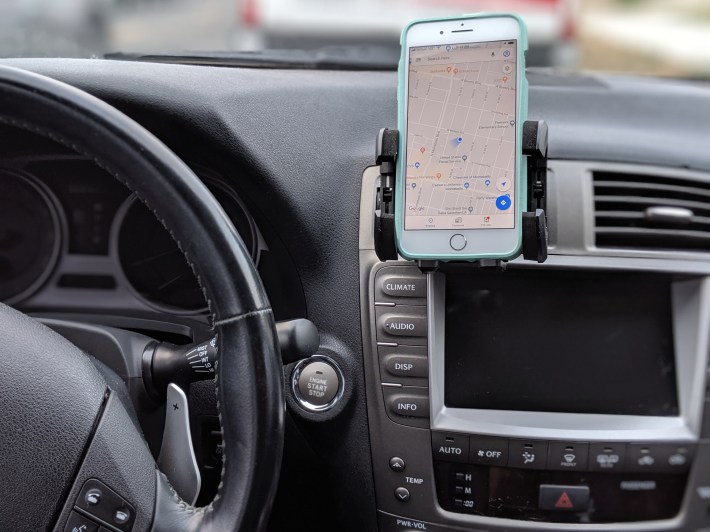
3. Incentives Are Not Worth Much
The incentive programs to earn daily or weekly bonuses are helpful, kind of. Their Power Driver Bonus program, advertised as helping drivers with 2011 or newer model cars earn 10 to 20 percent more per week was discontinued in August 2018. The newer Ride Streaks program gives drivers who meet the consecutive ride minimums (example: five rides in a row within a two-hour time limit) an extra $9-10 to my daily gross. But that’s about it. Unless you refer a friend to the platform and that friend gives 190 rides in their first 30 days, in which case you get $400. Easy, but not so likely.
4. Motivation Comes From Within and Sometimes the App, Too.
Lyft really does take care to be as motivational as possible. The choice to sign up exclusively for Lyft versus Uber was a no-contest. As a female passenger of both services over the years, the quality found in Lyft always surpassed its competitor. This is likely a direct result of their care to ensure the quality of drivers hired, conducting extensive background checks that include searching several criminal records databases and a DOJ sex offender registry, in addition to daily monitoring for new criminal convictions, an annual background check, and enhanced identity verification. After reaching out for comment, Uber declined to interview for this article in general but also on the specific question of their background check practices.
From text messages rooting you on to get out there and meet your weekly goal, or to tell you it's OK maybe next week when you don't, I was really impressed and could see why people are drawn to Lyft.
5. Check Yourself Before You Look Like a Jerk
Pickups and directions are actually pretty stressful and unpredictable. Goodness, help you if you get a backseat driver or miss a turn. Or if someone types in the wrong pickup address. Or types in multiple drop-off addresses but in the wrong order. Or if there’s a language barrier. The expectation is flawless driving because the job is so easy since the app is doing all the work for you, or so the assumption goes.
There was one Saturday night in Hollywood where a passenger input two drop-off addresses in the wrong order, and passively blamed me as we made our way to the first address, asking where we were going, why, and how long had I been driving for the platform? Calling into question my skill and intelligence as a driver was easier than simply admitting that she made a mistake.
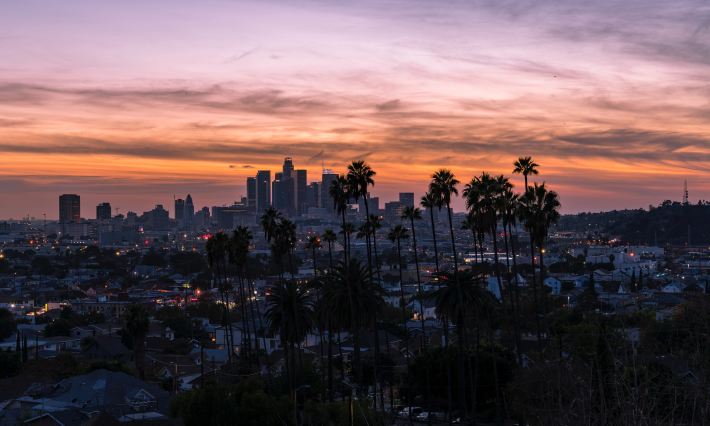
6. Your Car, Their Smells
Oh, those lingering smells. Even if you consider yourself a tidy, cleaning-obsessed person, it can sometimes feel like a side gig of its own to keep your car clean while on duty. On average I would visit the drive-thru car wash 2-3 times per week (shout out to the car wash workers at the Chevron on Beverly and La Brea!) I once had a passenger who brought a whole glass baking pan of pasta into the car and was immediately eating from it as she sat in the backseat, explaining she was hungover.
It had a really potent smell. A different passenger once forgot restaurant leftovers in the backseat and I didn't realize until the next passenger asked me, at the close of the ride, if I wanted my bag of soup that was sitting back there. Then there’s the unforgettable smell of natural body odor coming from the passenger who decided to sit directly behind you, a smell that stays in the nose for hours afterward as a free souvenir of the time you spent together.
It Was Good While it Lasted, Lyft
It was on a rainy Thursday morning in late-January when I officially called it quits. Up early to take advantage of the weather since heavy rains always yield heavy requests, I was en route to the first pickup when my car’s power suddenly began to wane. The radio and lights flickered on-and-off as I waited to make a left at the intersection of Highland and Santa Monica. After what felt like forever, the arrow turned green and my car very slowly moved forward into the intersection, thankfully completing the turn and staying alive long enough to pull off at a side street before completely dying altogether.
Six weeks, 201 rides, virtually no livable income and one suddenly failed alternator later, I let the Lyft cash dream of sustainable independence on a flexible schedule wash away with the rest of the rain that morning, and moved on.
As I sat in the rain, my first Lyft pickup of the day no longer happening, I made a choice. I resigned myself to the Universe. I let go. Six weeks, 201 rides, virtually no livable income and one suddenly failed alternator later, I let the Lyft cash dream of sustainable independence on a flexible schedule wash away with the rest of the rain that morning, and moved on.
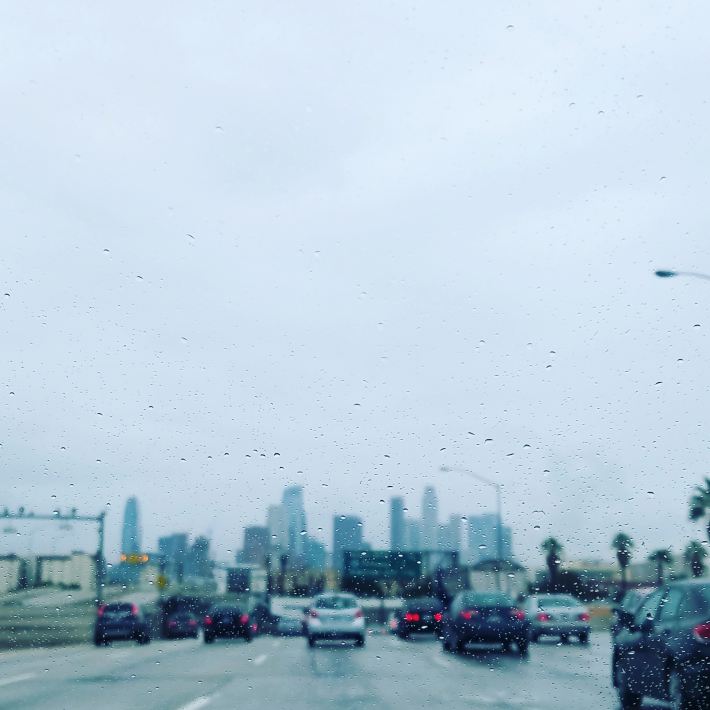
I understand that being able to make that choice was a luxury; other drivers are not so lucky. Rideshare driving is a hustle of hell I wish upon no one. I am grateful to have had the source of income for the duration it was there. When you have zero sources otherwise, that extra $32 from a slow Saturday afternoon makes all the difference.
Not all rideshare stories end in crime and in fact, the experience can sometimes be the catalyst for connecting two people from very different backgrounds whose paths might not have crossed otherwise.
Los Angeles is a diverse, vibrant community, and driving for the platform helped remind me of that fact. In addition to the adage of never judging a book by its cover. Not all rideshare stories end in crime and in fact, the experience can sometimes be the catalyst for connecting two people from very different backgrounds whose paths might not have crossed otherwise.
It’s easy to complain when something isn’t perfect during a ride, be it a missed turn or the traffic. It’s also pretty easy to treat people with basic respect and dignity.
Be grateful to afford the expense that is a ride versus finding yourself in the driver’s seat. And maybe send your driver a tip too, because at the end of the day they are one human being doing the best they can to earn an honest living. No one dreams of growing up to be a Lyft driver, but everyone still dreams.
